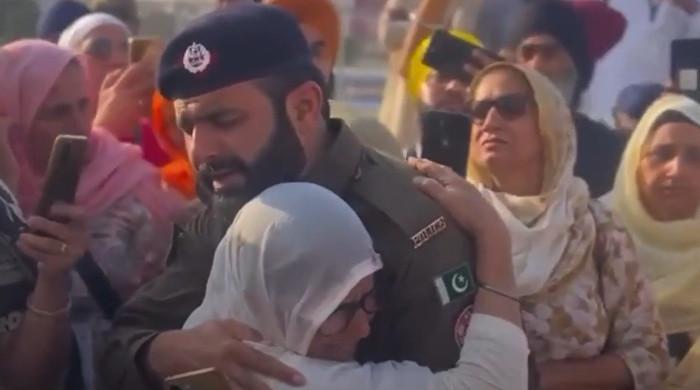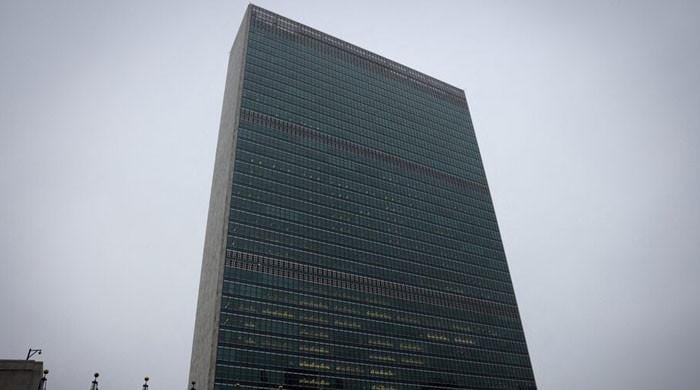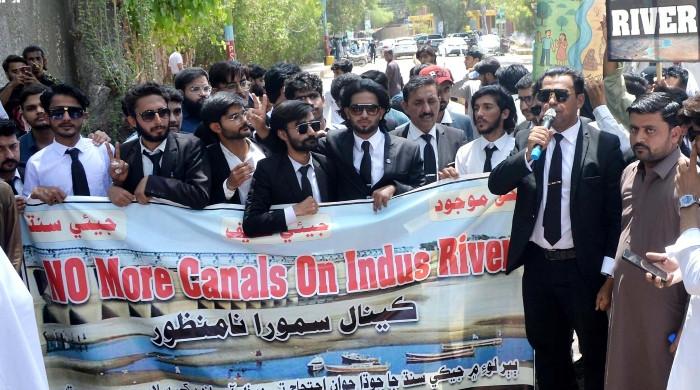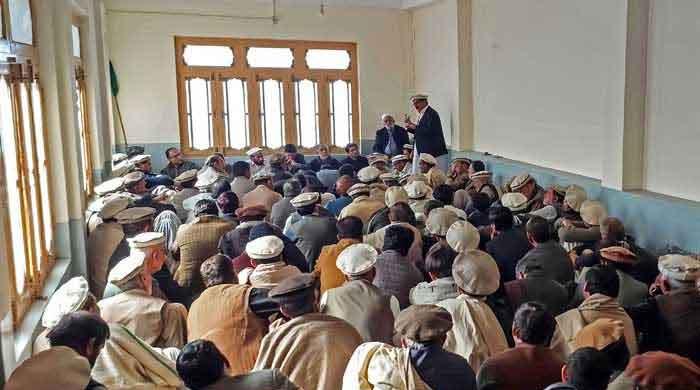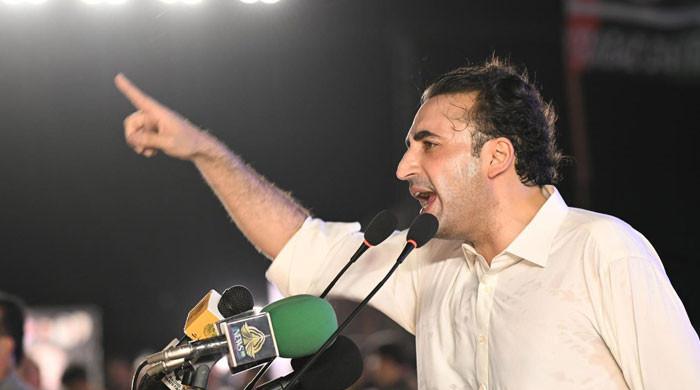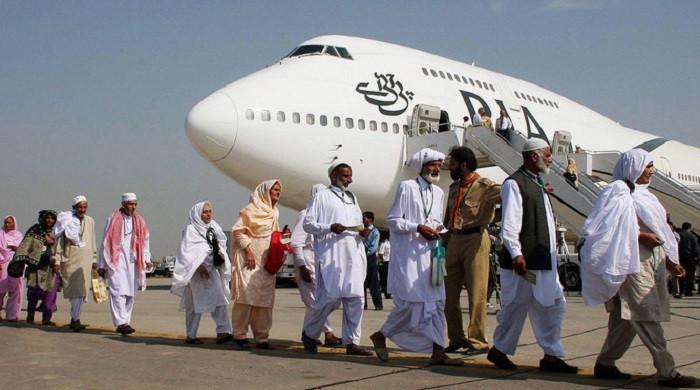Musharraf’s ‘four deals’
Musharraf's latest disclosure not only caused serious embarrassment to the government and former Army Chief but also raised some serious questions
December 22, 2016
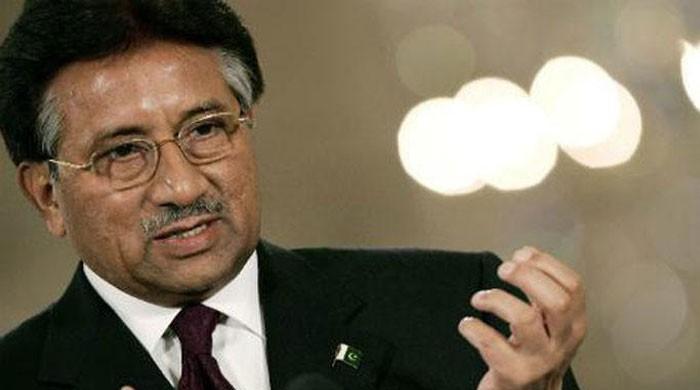
One thing is for sure: former President and Army Chief General (Retired) Pervez Musharraf is above the law. Getting out of the country and living in self exile, was part of deal, something he disclosed himself. But in his tenure he struck three other deals.
In 2001, a deal between him and the Saudi royal family for the release of the then Prime Minister Nawaz Sharif, another with Benazir Bhutto in 2007 termed as NRO, and a deal with Asif Ali Zardari, to allow him safe exit and no trial. Now he himself has triggered a new controversy.
He did not listen to advise from the ISI chiefs not to return in 2013, for both security reasons and Sharif's chances of victory, who had intention to put him on trial.
Musharraf's latest disclosure not only caused serious embarrassment to the government, former Army Chief General (Retd) Raheel Sharif, but has also raised serious questions as why his trial was portrayed by some as stumbling bloc between civil-military relationship, whereas it was a simple case of a person who had abrogated the Constitution of Pakistan, and committed high treason.
Former Prime Minister Zulfiqar Ali Bhutto went to the gallows because the then Army Chief late General Zia-ul-Haq had feared that if he held election and PPP returned to power, Bhutto could have tried him under Article VI. In 1988, Islami Jamhoori Ittehad was formed to cut to size PPP's victory as the then military establishment had feared that if given chance Benazir Bhutto could have taken revenge.
It is also a matter of history that the successive higher judiciary had given illegal rules, legal cover under Law of Necessity. Same cover was given to Musharraf in Syed Zafar Ali Shah case in 2001. So, in the past judiciary had failed in protecting the Constitution and justified all Martial Law and given lease to the military dictators—- the last one was Gen. Musharraf.
Civilian rulers should be punished for corruption, violating the Constitution and not being able to set good record of governance, but the biggest offence in the eyes of the Constitution, was its abrogation. When for the first time the government decided to execute this clause of the Constitution, it made an issue of civil-military stand off.
But, it was not the only case against him of high profile nature. Benazir Bhutto's murder case, Akbar Bugti's murder case, Lal Masjid operation were some of the high profile cases in which he was not only wanted but even his warrant had been issued.
It was also quite surprising that in successive interviews the former President had clearly stated that he would only return to Pakistan, when he would be given fair chance, free moment, and yet, no court had taken notice as he went abroad on medical leave and had assured the court he would return once he gets well.
If no clarification came from the concerned institutions one would be compelled to believe about the script behind the 2013-14 dharna movement of Imran Khan. No wonder why Imran-Qadri, were so confident about 'umpire's finger’.
Musharraf has caused biggest embarrassment to his well-wisher General (Retd) Raheel Sharif, who played a role in bringing his ex-boss out of a difficult situation.
This is how even another ex-chief, retired General Aslam Baig was saved from Mehran bank scam, particularly after Supreme Court of Pakistan had not only declared 1990 elections as rigged but also instructed the government to take action against all those who had distributed the money to the than opposition leaders and also against those who had accepted the money.
In Musharraf's case the then PPP government struck a deal with the establishment that it would not arrest or put him on trial, if he resigned as President. He was given red carpet exit and sadly, the PPP government neither asked any question on his role in Benazir's murder nor registered a case under Article VI. One often wonders why someone like Senate Chairman Mian Raza Rabbani or Chaudhry Aitezaz Ahsan never raised this question with their leadership.
Federal Interior Minister Chaudhry Nisar Ali Khan, who alongwith Chief Minister, Punjab Shahbaz Sharif was instrumental in bringing Musharraf as army chief, had initially opposed his trial under Article VI, as he knew that the pressure would come from the army against the trial. Even one of the hardest critique of his policy, late ISI chief Lt. General Hameed Gul came out with a statement against the trial or calling Musharraf a traitor.
When government finally decided to put him on trial, he was suddenly shifted to the hospital while going to the court. Could anyone even imagine something like this could have happened with any civilian ruler on trial? Many PPP leaders faced trial and conviction in the so called 'Libya Conspiracy case,' on allegations that they planned to get Bhutto out of custody.
Musharraf only once or twice went to the court and is now in Dubai and free to travel anywhere except Pakistan.
On the contrary, the day Musharraf landed in Pakistan, on October 12th, 1999 his commanders in Pakistan including the than Corps. Commanders had already staged the coup led by General Mahmood. Elected PM and his family were detained, government was sacked and all this happened without even imposing official Martial law. If the then SC, had even justified such coup, how come democracy and Constitution could uphold.
The misery of PM Sharif did not end there but he was put on trial in a ’hijacking case’, sometimes put in Attock prison and at times in Landhi prison, brought in APC to the court. Nawaz Sharif remained in prison for two years, and was convicted to life imprisonment but the government filed appeal to convert of life into death sentence. The Saudi royal family finally came to his rescue and rescued him under a 10-year agreement.
It finally ended when Musharraf struck an NRO with Benazir Bhutto and decided to return.
It is high time that the government now comes out in the open and tell the nation about the details of this fresh deal. This time Musharraf was a suspect and ball was in the court of the two Sharifs; PM Sharif and army chief Gen. Raheel Sharif.
This is how the system ran in this country. When any civilian rule tried to put any non-civilian on trial, it become the stumbling bloc in civil-military relationship, against the national interest, but, when any dictator put elected premier's on trial, it become regular legal procedure.
It is now the test for more than one Institution to justify Musharraf's exit from Exit Control List, and exit from trial.
The writer is the senior columnist and analyst of Geo, The News and Jang. Twitter: @MazharAbbasGEO




